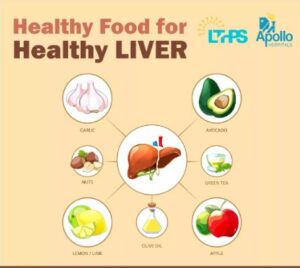Managing your diet and nutrition post-liver transplant is very important aspect. The diet maintenance is helpful in preventing excessive weight gain, and avoiding further any complications. It is also very important to ward off high blood pressure, infections, and other potential issues. The advice from the nutrition specialist or the treatment team will strictly be considered and followed that are tailored to your individual needs and lifestyle. Patients who’ve undergone liver transplants significantly enhance their long-term treatment success by diligently adhering to the rehabilitation program, with diet playing a pivotal role. This isn’t complex knowledge—maintaining a well-balanced diet is essential for anyone seeking a healthy life, let alone patients post-transplantation.
Role of the treatment team after liver transplant: Your treatment team is there to provide comprehensive care, integrating nutritional planning into the recovery process for transplant patients. Nutritionists play a crucial role in designing tailored dietary plans. We have discovered that the crux of post-liver transplantation well-being lies in adopting a nourishing diet. Here’s the key to achieving it:
Calcium: Enhancing bone strength becomes vital due to the risk of fractures and osteoporosis resulting from prednisone intake, a medication common among liver transplantation patients. Whey protein and certain leafy vegetables serve as rich sources of calcium. Additionally, nuts like almonds and seeds store substantial amounts of this essential mineral.
Fiber: The advantages of fiber are manifold, notably in maintaining a healthy weight. Fresh fruits and vegetables boast abundant fiber content, especially when consumed whole for optimal nourishment. Whole-grain wheat products, such as pasta and cereals, stand out as high-fiber foods offering significant health benefits.
Fats: Elevated levels of bad cholesterol pose added health risks and can hinder recovery. Conversely, integrating healthy fats into your diet contributes to overall health benefits. Opt for cold-water fish like tuna, abundant in omega-3 fatty acids, a remarkable element for promoting well-being. Vegetable oils and nuts serve as excellent sources of healthy fats too.
Vitamin D: Counteracting bone loss induced by prednisone intake involves incorporating Vitamin D into your diet. Dairy products, fresh orange juice, and fatty fish serve as excellent sources of this essential vitamin.
Protein: A crucial aspect of the rehabilitation program following a liver transplant, recommended by seasoned professionals in advanced medical centers like Delhi or Mumbai, involves allocating one-fourth of your diet to protein for at least two months post-transplant. Ensuring long-term
health benefits necessitates integrating protein into both your meals and beverages. People who prefer non-vegetarian food may choose for chicken, fish, eggs and lean meats, satisfying their dietary needs. Even people who eat vegetarian food also can opt from lentils, legumes, and dairy products, and also for vegan diet people, soy milk acts as a rich protein source. Additionally, nuts, seeds, and incorporating low-fat dairy products can assist in managing weight gain.
Guidance from your dietitian may encompass:
● Try having at least fruits and vegetables every day in five servings.
● Make an inclusion of poultry, lean meats, and fish in your diet.
● Ensuring an adequate daily intake of dietary fiber.
● Incorporating whole-grain breads, cereals, and other grains into your meals.
● Adhering to a low-sodium and low-fat diet.
● Choosing low-fat milk or other dairy products to support calcium levels.
● Following recommended food safety guidelines.
● Staying well-hydrated by consuming sufficient water and other fluids daily.
● Abstaining from alcohol consumption.
● Avoiding grapefruit and grapefruit juice due to their impact on a category of immunosuppressive medications known as calcineurin inhibitors.
Incorporating these elements into your daily dietary intake proves beneficial. Managing sugar
levels aids in regulating blood sugar. Adhering to dietary guidelines that exclude potassium (if
advised by your doctor) is crucial to avoid associated side effects and complications.

